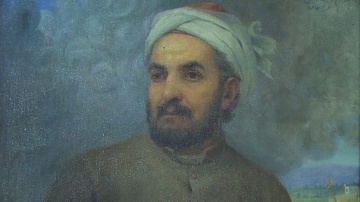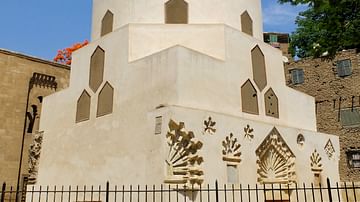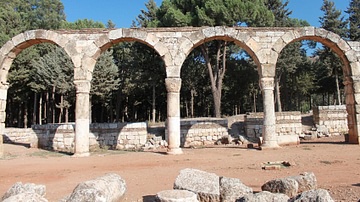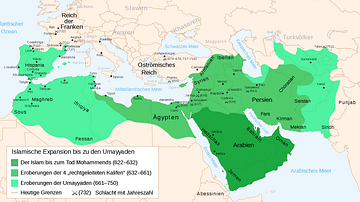Search
Search Results

Definition
Martyr
A martyr is someone who voluntarily dies for either a religious or secular cause. The word originates from "witness" in Greek and is related to a witness in court testifying to one's beliefs or truth, despite the risk involved. As such, it...

Definition
Hafez Shiraz
Hafez of Shiraz (also given as Hafiz, l. 1315-1390) is considered the greatest of the Persian poets and among the most famous and admired writers in world literature. He is among the most often translated poets in the present day and his...

Definition
Shajara al-Durr
Shajara al-Durr (r. 1250) was the founder of the Mamluk Dynasty in Egypt, and she was the first and only woman to sit on the Islamic Egyptian throne. She held the title of sultana for only 80 days but left a lasting mark through architectural...

Definition
Persian Rose-and-Nightingale Paintings
Rose-and-nightingale paintings and patterns (gul-u-bulbul) are a subtheme of the bird-flower (gul-u-morḡ) genre in Persian art. Bird-and-flower paintings are of Chinese origin and include pictorial elements such as flowers and plants, birds...

Definition
Nasta 'liq
Nasta 'liq is one of the styles of Islamic calligraphy that was developed on Persian grounds by Persian calligraphers. The art of calligraphy has always held a prominent position in Persia, and its usage extends beyond the limits of the pages...

Definition
Anjar
The city of Anjar stands as the single Umayyad site in Lebanon, located near the Litani River and 58 km from the capital of Beirut. Anjar was founded during the Umayyad period under Caliph Walid ibn 'Abd al-Malak (r. 705-715 CE) and takes...

Image
Umayyad Conquest, 7th & 8th Centuries CE
Map showing the Umayyad Arab (Islamic) expansion throughout the 7th and 8th centuries CE. In dark green is depicted the extent of Islam up until the death of Mohammed (622-632 CE); in the intermediate green is shown the conquests of Rashidun...

Article
Kingdom of Magadha: Wars and Warfare
In ancient India from the 6th century BCE onwards, the kingdom of Magadha (6th century BCE to 4th century BCE) made a mark for itself. Located in the eastern part of India in what is today the state of Bihar, it outshone other kingdoms and...

Article
Battle of Civitate
The Battle of Civitate was fought in southeastern Italy on 18 June 1053 between a papal army of Pope Leo IX (r. 1049-1054) and an outnumbered force of Norman knights seeking recognition of their conquests and titles. The Normans were victorious...

Article
The Gold Trade of Ancient & Medieval West Africa
West Africa was one of the world's greatest producers of gold in the Middle Ages. Trade in the metal went back to antiquity but when the camel caravans of the Sahara linked North Africa to the savannah interior, the trade really took off...